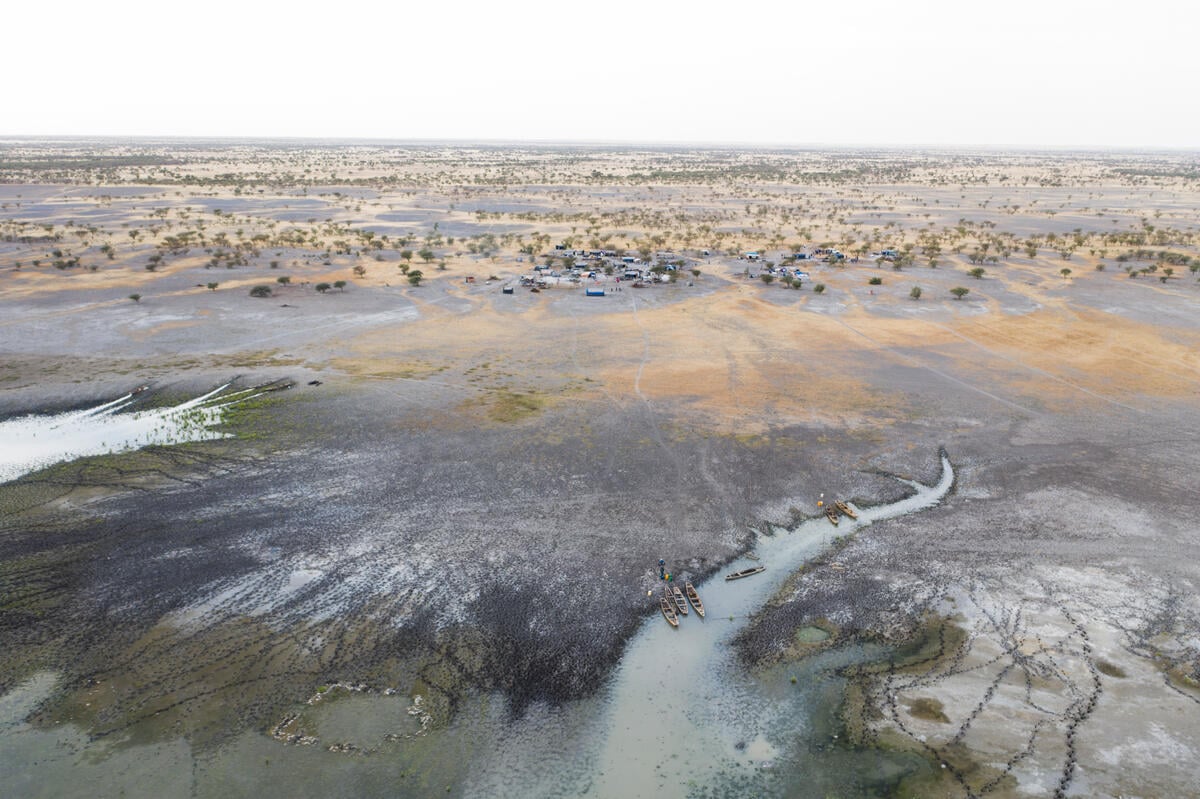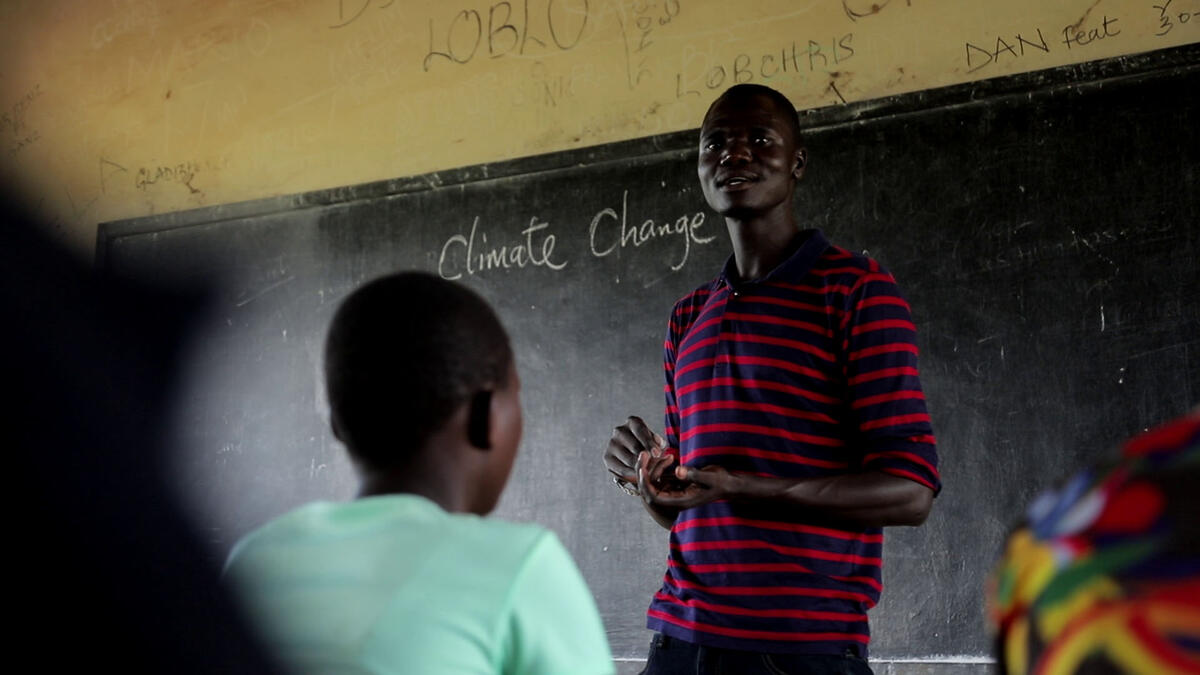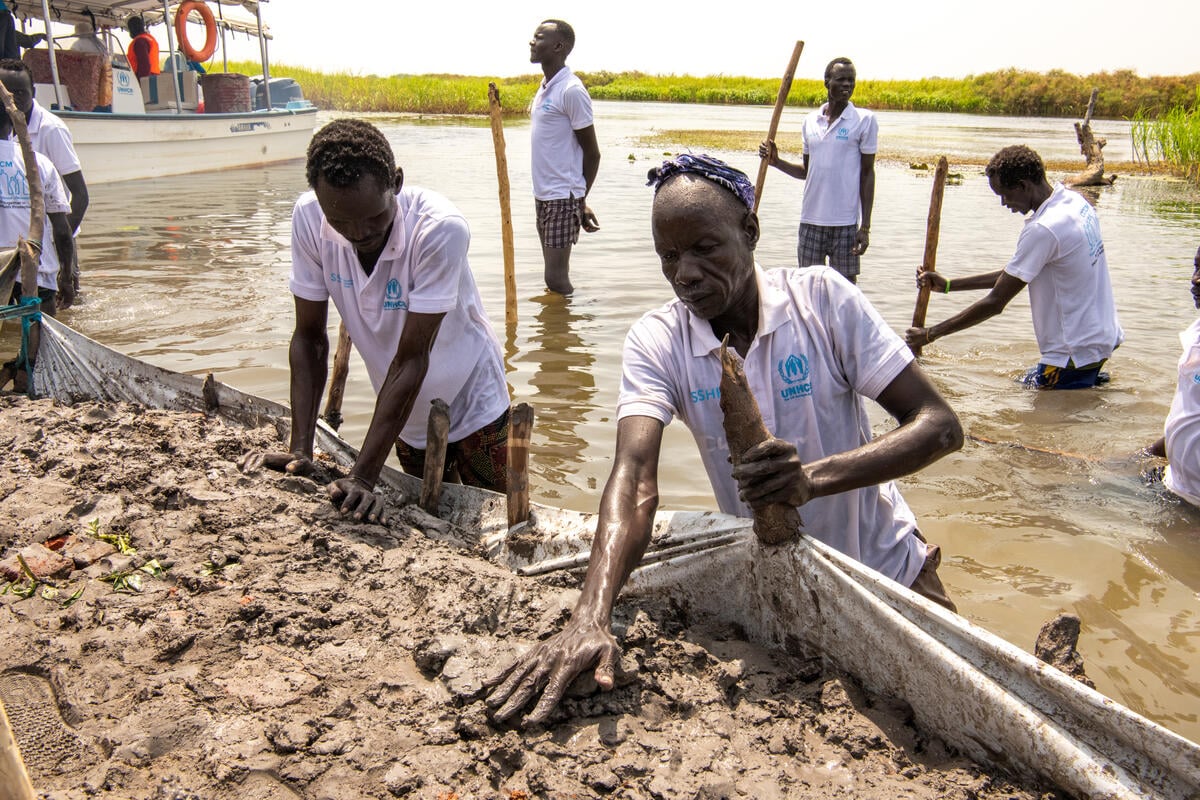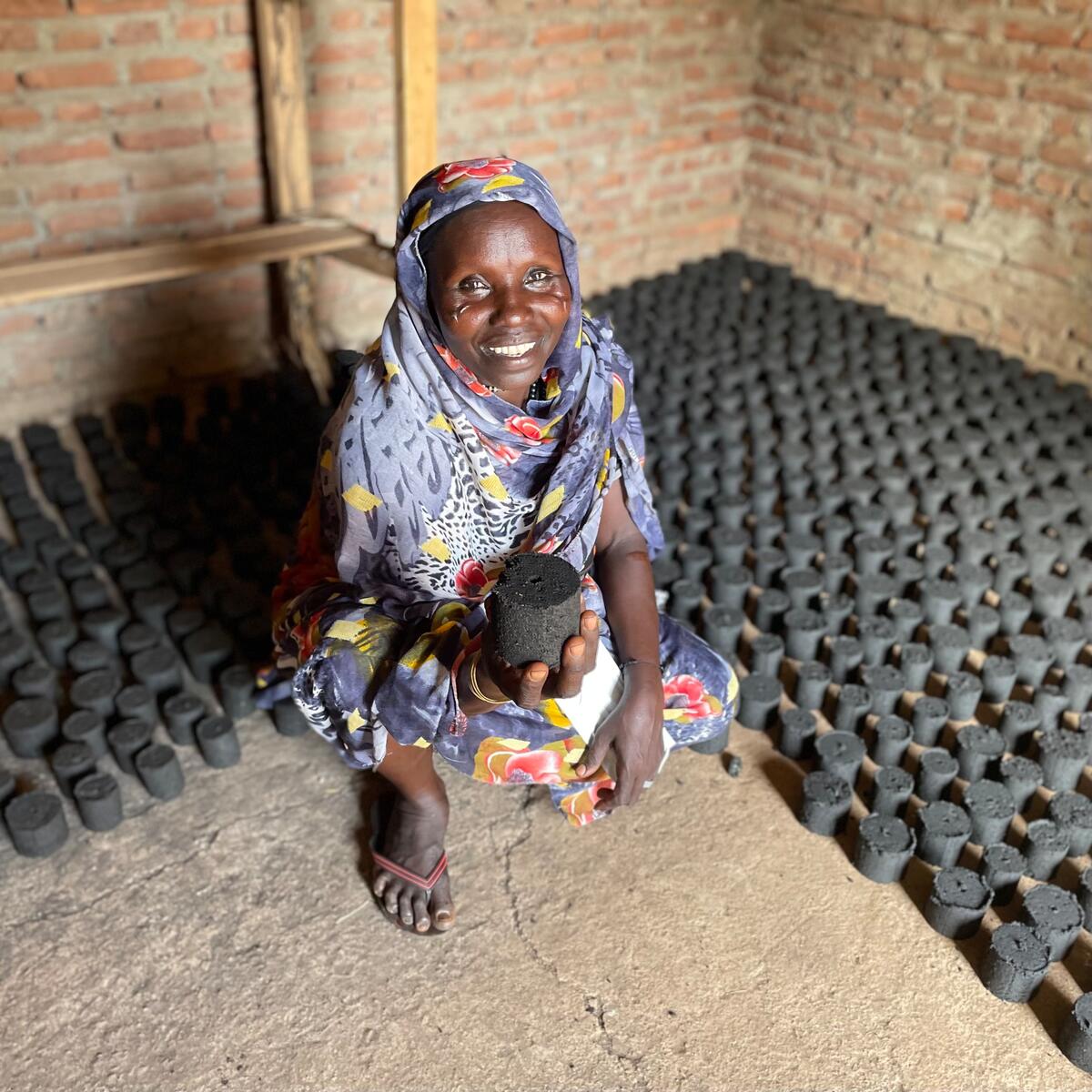South Sudanese refugees make safer, better, greener stoves in Ethiopia
South Sudanese refugees make safer, better, greener stoves in Ethiopia

Nyadow Thoan recalls how lush and green the environment in Nguenyyiel camp was when she first arrived there in 2017.
But today, the 27-year-old South Sudanese mother of three is concerned by how much the camp’s surroundings in western Ethiopia’s Gambella region have changed. Since the camp’s establishment five years ago, its natural forests have diminished, as refugees and the local community cut down trees to produce firewood, which is their sole source of energy.
The impact on the environment is clear and the consequences are being greatly felt by refugees, particularly girls and women who are traditionally responsible for collecting firewood for cooking.
But as the firewood becomes increasingly scarce so does refugees’ access to sufficient cooking energy.
“It was such a big problem to get firewood and it was so difficult to cook outside when it was windy, because a lot of firewood went to waste,” explains Nyadow.
That was before Nyadow got her portable, clay cookstove – a small device with a big effect – that she helped develop together with other refugee women.
“It was such a big problem to get firewood.”
To address the concerning lack of energy supply in refugee-hosting areas as well as the environmental consequences of using firewood, UNHCR, the UN Refugee Agency, is working with partner GIZ on a joint program dubbed “Energy Solutions for Displacement Settings” in Ethiopia.

“We learnt how to save energy, how to light fire in the rainy season when the wood is wet and how to cook with very little firewood,” says Nyadow.
She adds that during the training, they came up with a lot of recommendations and improvements for the stove.
“An electric or solar energy stove would be better but they are very expensive, so we have designed the best alternative solution which has many benefits,” she adds.
The stoves are produced by members of the local Ceramic Producers Association and use less firewood. In the long run, fewer trees will be cut, which has a positive impact on the air quality in the camp.
“We can even use other energy sources like grass and corn cobs. It makes a big difference,” explains Nyabane, 21, another recipient of the cookstoves.
“We have designed the best alternative solution which has many benefits.”
But the most important advantage, according to the women, is the reduced need to venture into the bush to collect firewood.
“We have to travel very long distances, like two to three hours, to collect firewood. So, it could easily be a full day’s trip, many times a week,” adds Nyabane.
Nyadow agrees, adding that for women like her with newborn babies, it’s tough to go into the forest to fetch firewood.
“It’s in the bush that bad things happen, where women and children can be raped or worse!” she explains.
So far, one group of women in the camp has received the cooking stoves. 200 additional stoves will be produced and distributed across the six camps in Gambella.
Kwadwo Frempong, UNHCR’s Development Officer in Gambella explains that working with the communities will help in getting feedback on how the agency’s energy policies can better address people's needs.
“We hope to improve refugees’ access to energy and reduce the problematic deforesting by producing the stoves and training refugees on how to use them,” he explains.
He adds that by gradually adopting a market-based approach where local manufacturers develop the stoves and refugees buy them at affordable prices, people’s livelihoods will improve, ultimately reducing their dependency on aid. He further explains how UNHCR, GIZ and other partners are exploring different approaches to enhance livelihoods and income-generating initiatives across the camps.
Nyadow and Nyabane hope that many more families in their community can benefit from the stoves as they do.
“We are the role models, so we tell everyone about the cookstoves and their advantages,” says Nyadow.









